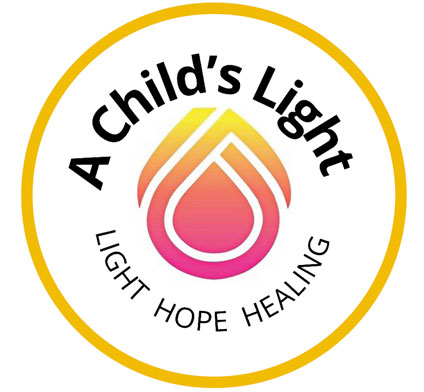OUR IMPACT
 The traumas children endure include a range of issues that are hard to talk about: parental neglect; malnutrition; family dysfunction due to alcohol and drug addictions; physical abuse; and sexual abuse including rape.
The traumas children endure include a range of issues that are hard to talk about: parental neglect; malnutrition; family dysfunction due to alcohol and drug addictions; physical abuse; and sexual abuse including rape.
We seek to expedite support and overcome the range of challenges inherent in the local systems. Challenges include delays in access to county-provided services, limitations on available therapies and best practices, and specialty needs of younger children combined with overall high costs.
Collaborating with many agencies and individuals, We are part of a team seeking to confirm and support a child exposed to life-changing trauma. When a problem is first detected by a parent/caregiver, guidance counselor, teacher, concerned family member or police officer, we can provide funding for early intervention and treatment.
Positive Impacts on Children
With mental-health support, guidance counselors reported improved scholastics and interpersonal relationships at school. Children and youth report fewer impulsive behaviors and lessened desire to self-harm and self -medicate. Overall, parents/caregivers report that their children appear less depressed, have less anxiety, are more motivated to engage in family activities, and reach out to new friends.
Positive Impacts on the Community
The communities where the clients live also experience a positive impact. Early therapy helps inform life skills such as anger management, impulse control and emotional intelligence. Studies show that these children and youth remain in school, have less contact with law enforcement, make healthier life choices, are more able to visualize future success, and are motivated to attempt new challenges.
These positive outcomes promote a positive direction—away from incarceration, medical disability, inability to hold a job, hospitalization/rehabilitation for substance abuse, and homelessness. This ultimately produces significant savings at local, state and federal levels.
Food Insecurity: 2-year-old mixed race boy
A young child had experienced extreme food insecurity as both parents were unable to care for the little boy due to substance use disorders. A bottle would be put in his crib; left to his own limited ability to feed himself, he was always hungry. Placed in foster care, he repeated the word “eat” up to 100 times in the morning before his foster mother could quickly feed him. The county was unable to offer any support to her and is currently unable to provide therapy for 2-year-old children. The foster mom reached out to A Child’s Light for help, and the first therapy session was scheduled in 5 days.
The therapist used PCIT/Parent-Child Interactive Therapy, an intervention developed for children between the ages of 2 and 7, that allows very young children to be accompanied by their parent/caregiver. The strong support of the trauma-informed therapist, plus the dedication of and security provided by the foster mom, enabled the child’s behavior to be eradicated within a standard series of therapy sessions. If the situation had not been addressed, it could have developed into any number of unhealthy dietary habits such as obesity, low self-esteem, an eating disorder, possible disability and potential reliance on social services for a lifetime.
This is just one example of how a small investment of $900 was able to address an early childhood trauma and help build a stronger foundation for a healthy and resilient adulthood.
